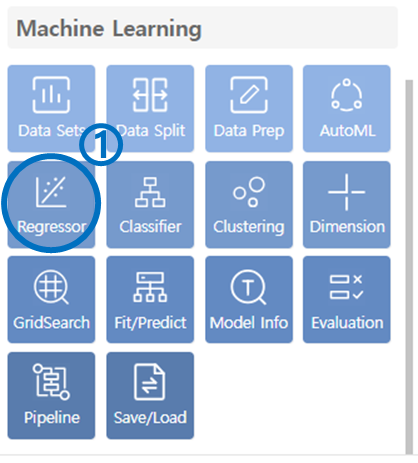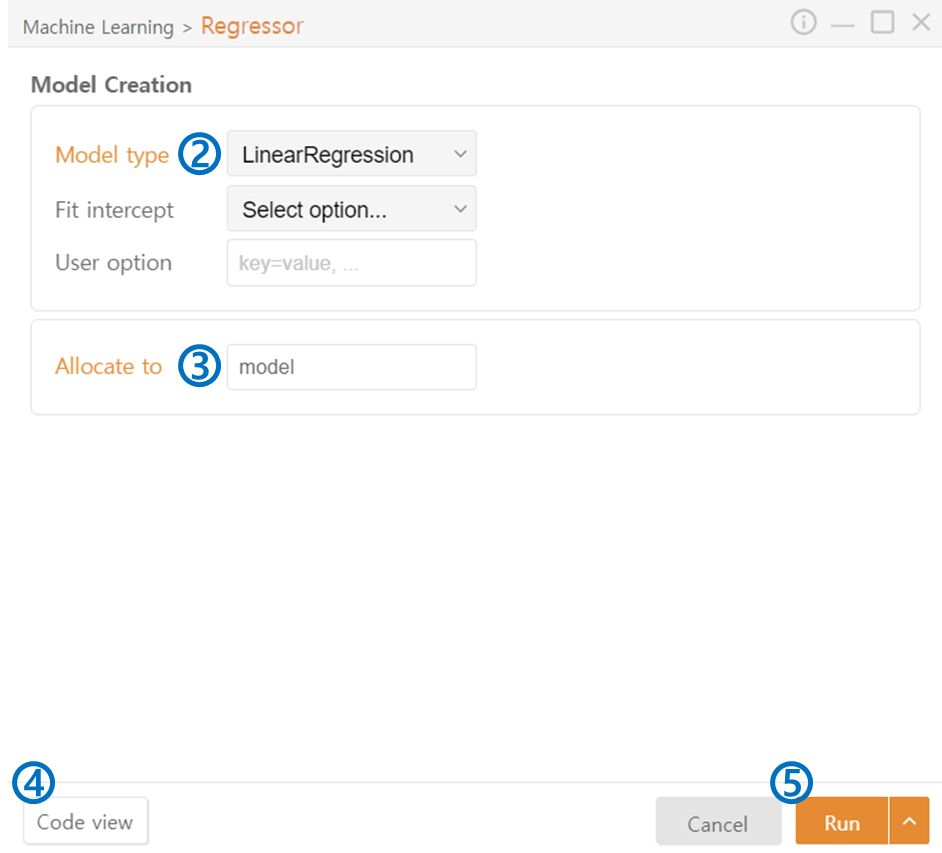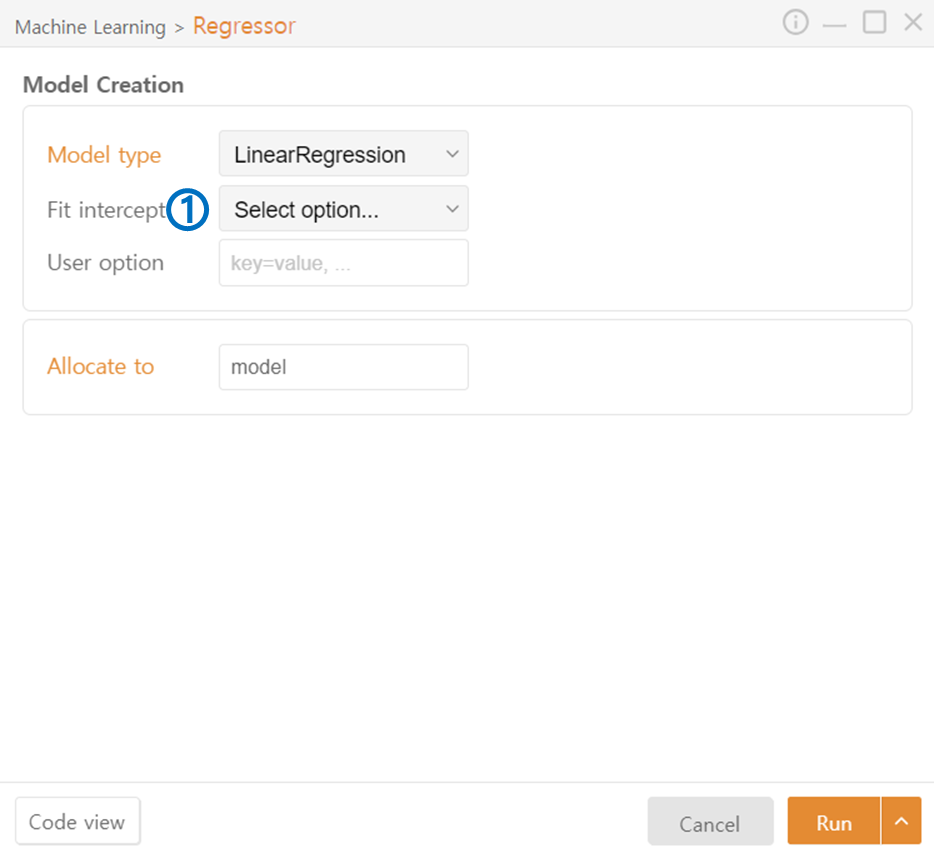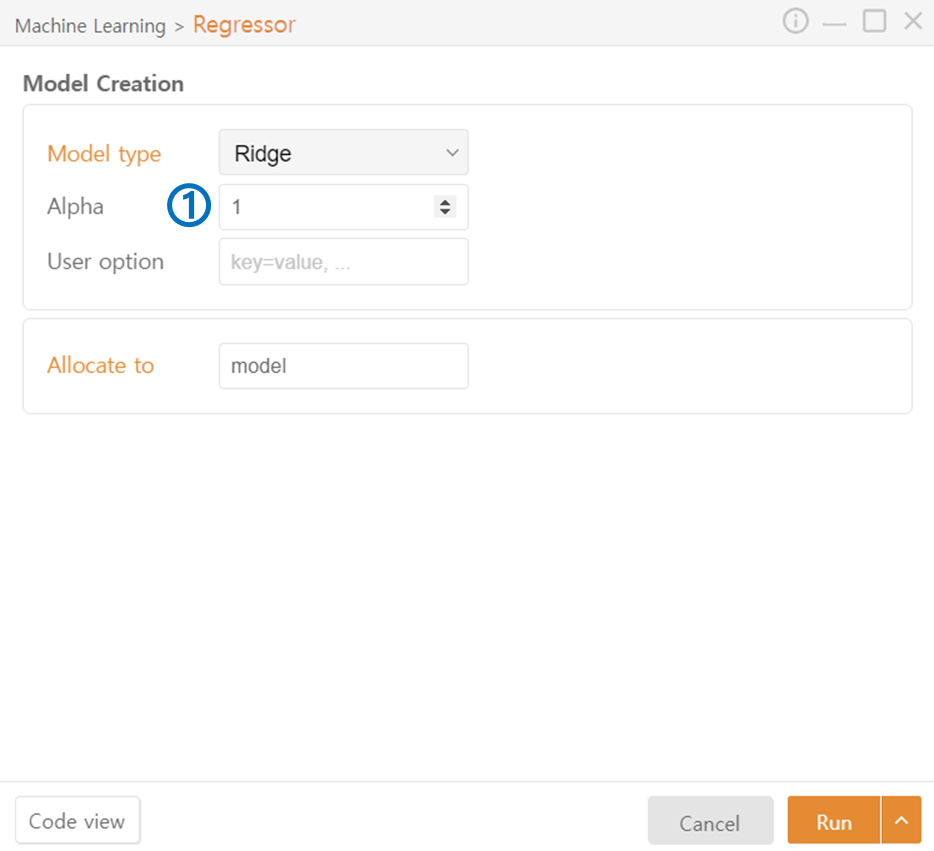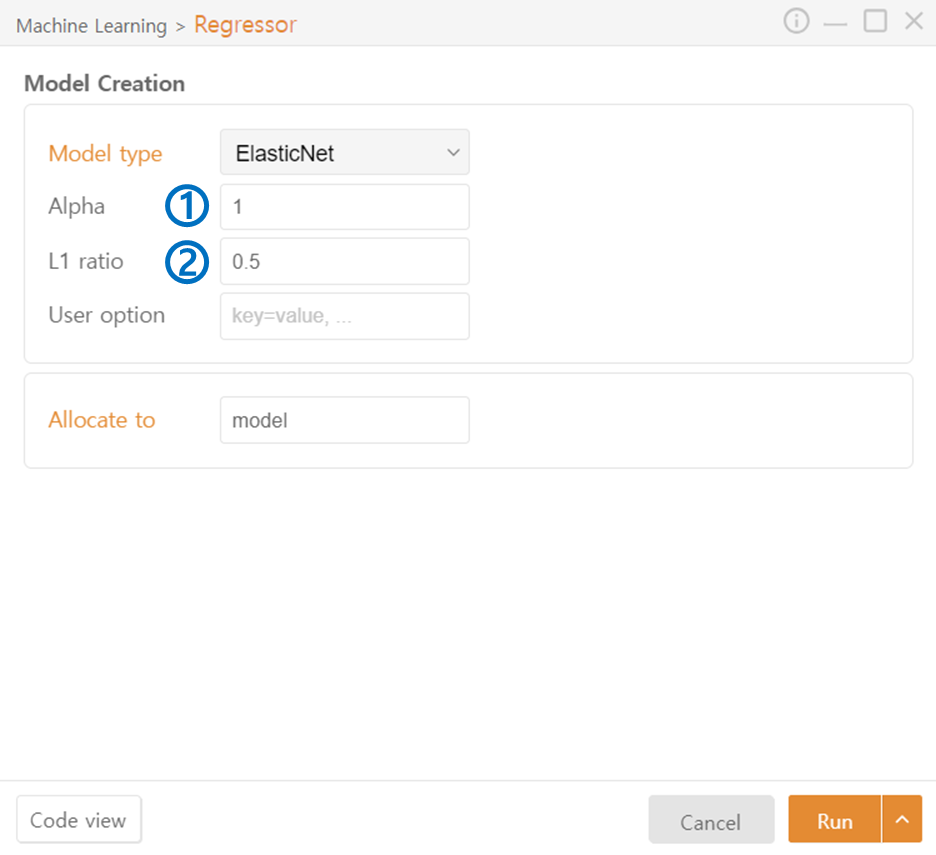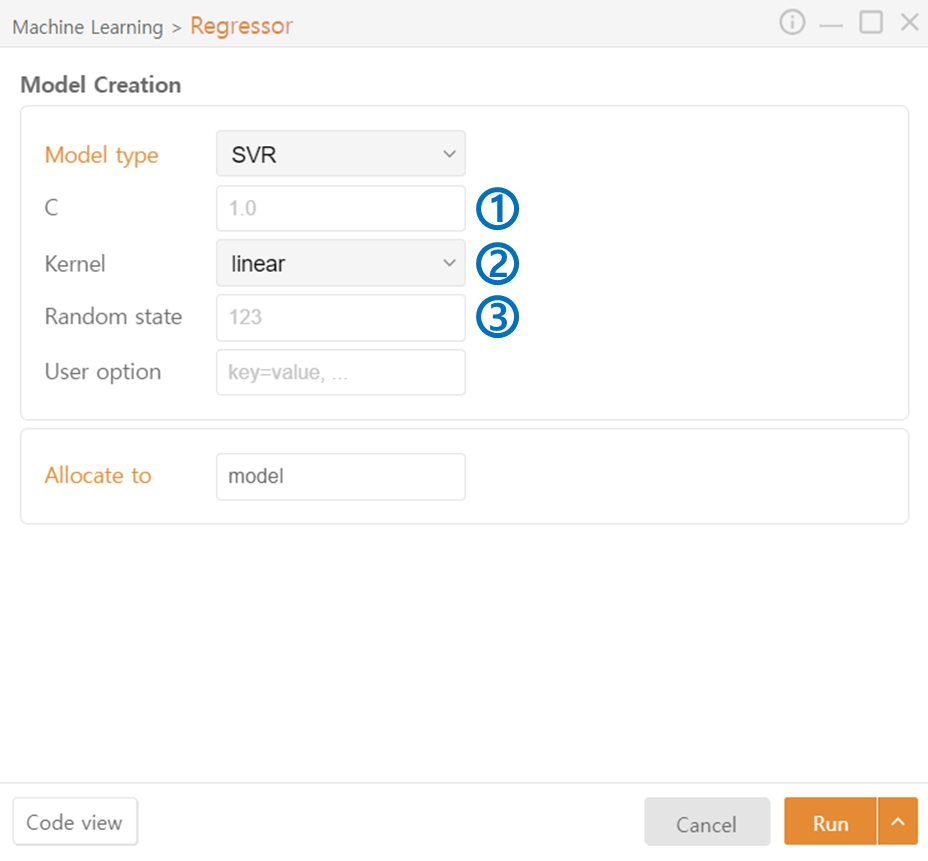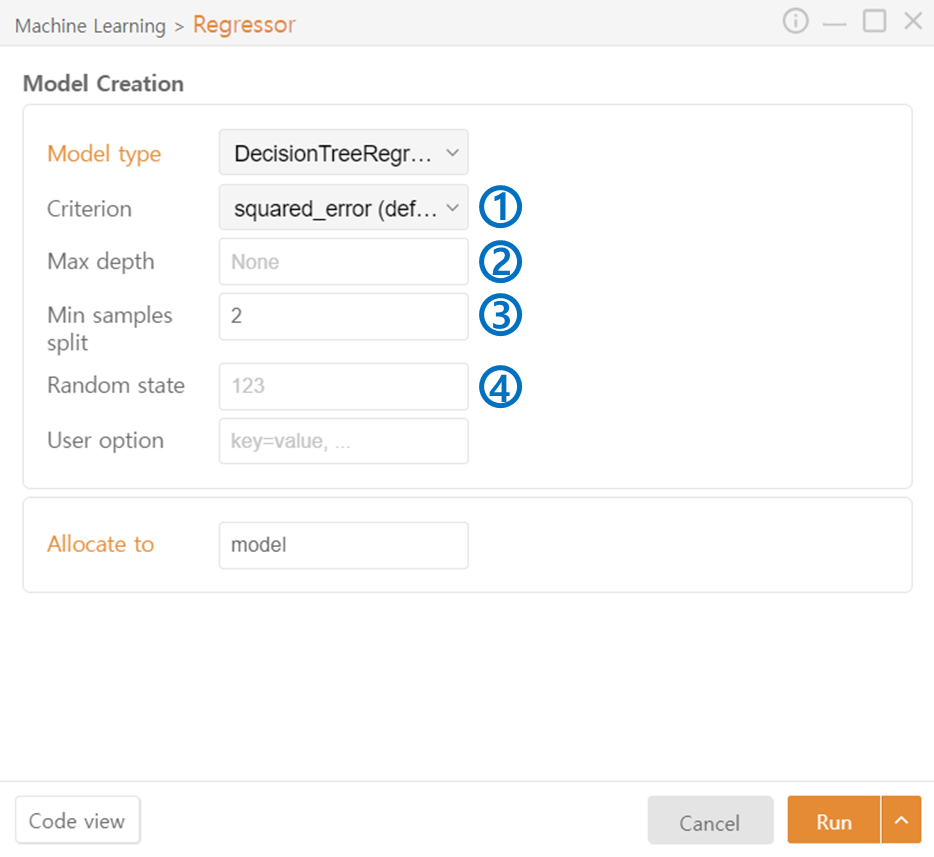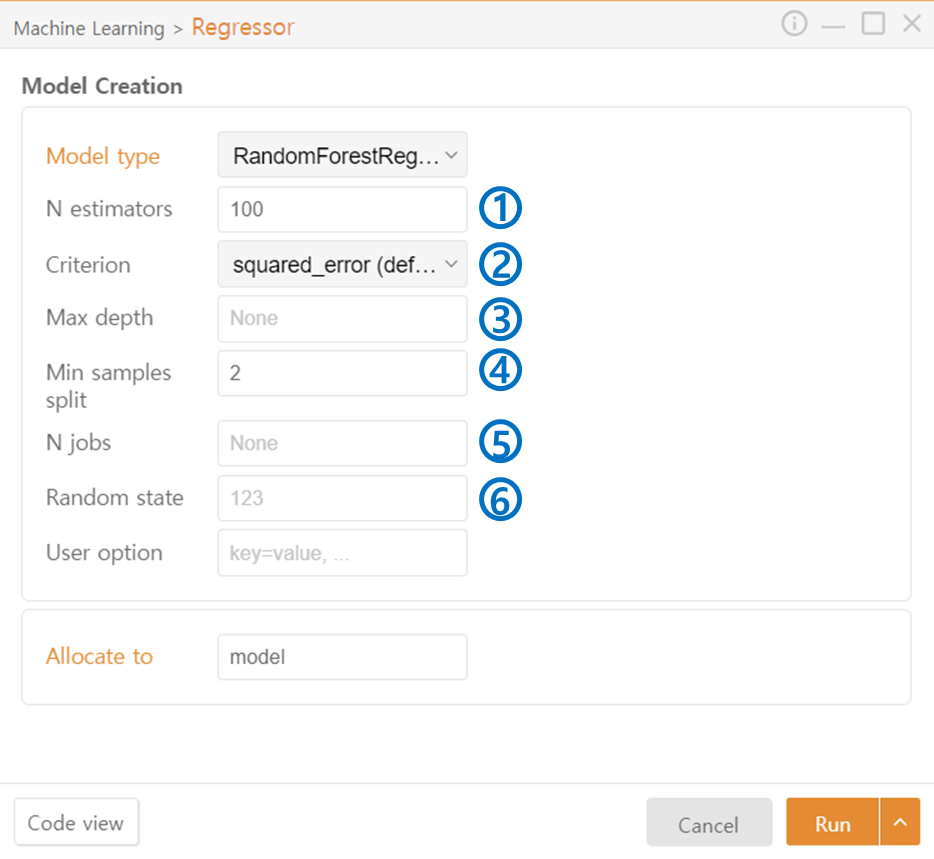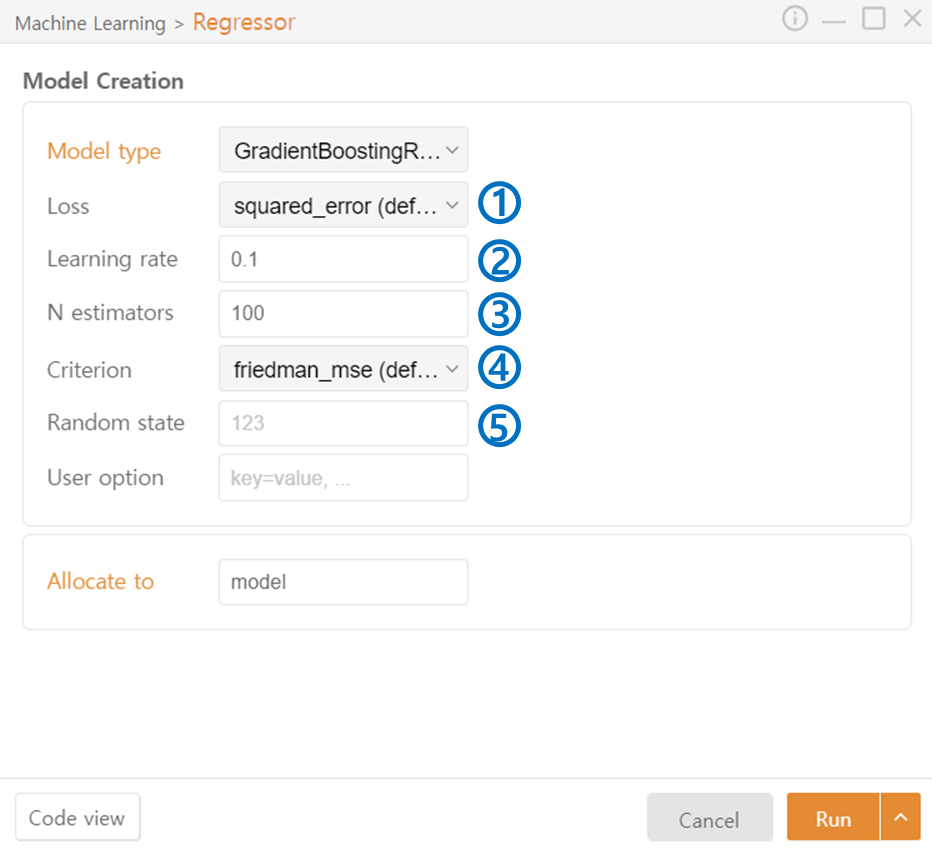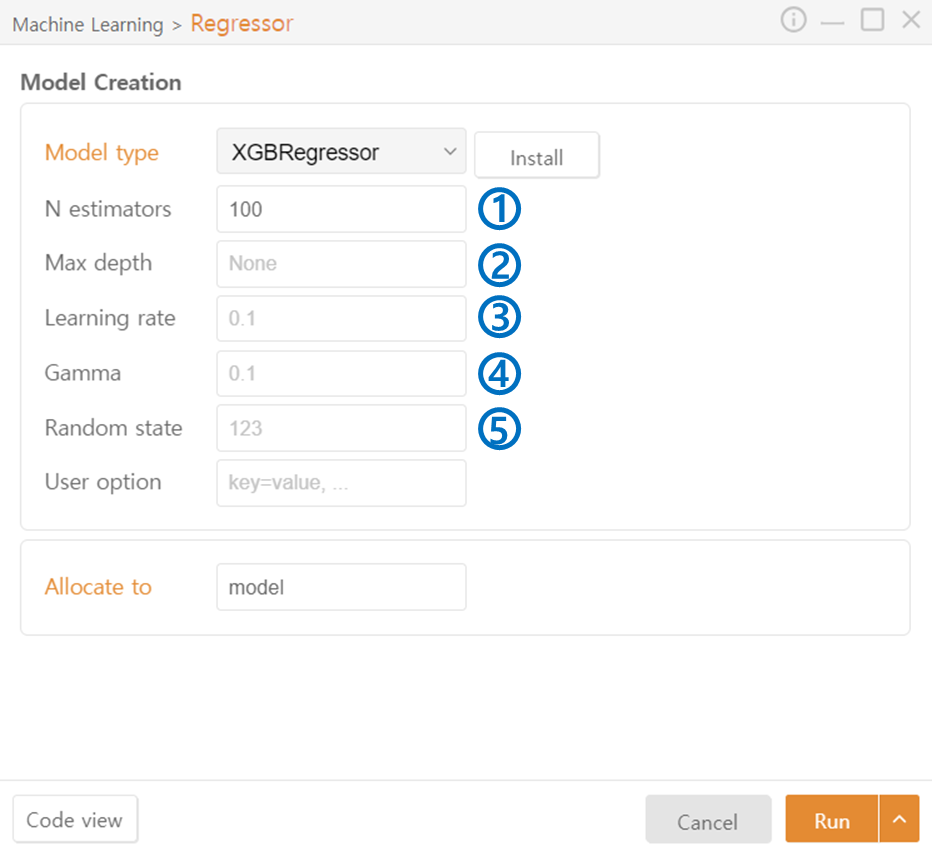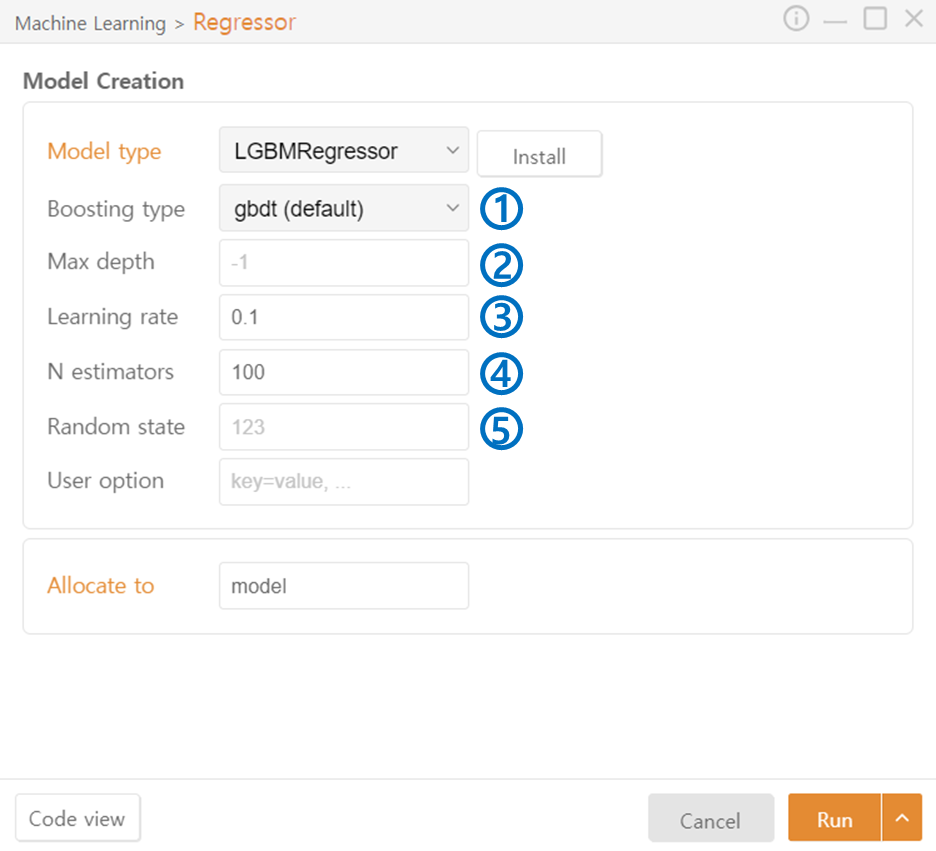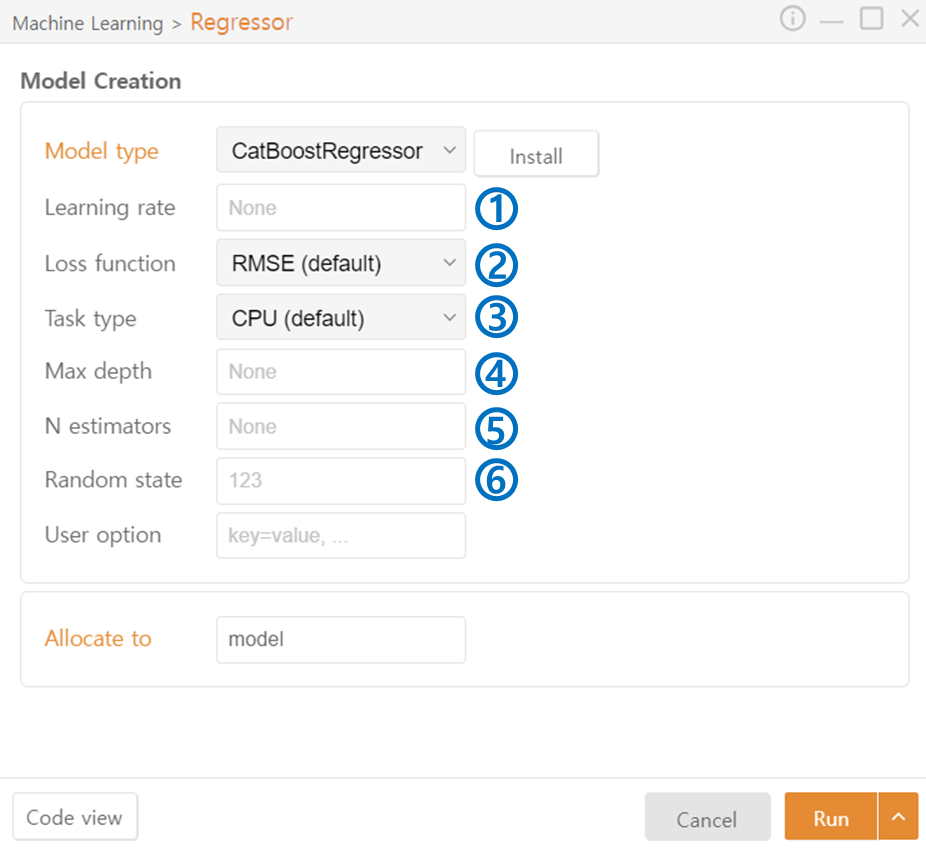5. Regressor
Click on the Regressor in the Machine Learning category.
Model Type: Choose the regression model.
Allocate to: Enter the variable name to assign to the created machine learning model.
Code View: Preview the generated code.
Run: Execute the code.
Linear Regression
Fit Intercept: Choose whether to include the intercept.
Ridge / Lasso
Alpha: Adjust the level of regularization.
ElasticNet
Alpha: Adjust the level of regularization.
L1 ratio: Adjusts the balance (ratio) between L1 (Lasso) and L2 (Ridge) regularization.
SVR(SupportVectorMachine Regressor)
C: Represents the degree of freedom for model regularization. Higher values of C make the model more complex, fitting the training data more closely.
Kernel: Function mapping data to a higher-dimensional space, controlling model complexity.
Degree(Poly): Determines the degree of polynomial.
Gamma(Poly, rbf, sigmoid): Adjusts the curvature of the decision boundary.
Coef0(Poly, sigmoid): Additional parameter for the kernel, controlling the offset. Higher values fit the training data more closely.
Random state: Sets the seed value for the random number generator used in model training.
DecisionTree Regressor
Criterion: Specifies the measure used for node splitting.
Max depth: Specifies the maximum depth of the tree.
Min Samples Split: Specifies the minimum number of samples required to split a node.
Random state: Sets the seed value for the random number generator used in model training.
RandomForest Regressor
N estimators: Specifies the number of trees in the ensemble.
Criterion: Specifies the measure used for node splitting.
Max depth: Specifies the maximum depth of the tree.
Min Samples Split: Specifies the minimum number of samples required to split a node.
N jobs: Specifies the number of CPU cores or threads to be used during model training.
Random State: Sets the seed value for the random number generator used in model training.
GradientBoosting Regressor
Loss: Specifies the loss function used.
Learning rate: Specifies the learning rate.
N estimators: Specifies the number of trees in the ensemble.
Criterion: Specifies the measure used for node splitting.
Random State: Sets the seed value for the random number generator used in model training.
XGB Regressor
N estimators: Specifies the number of trees in the ensemble.
Max depth: Specifies the maximum depth of the tree.
Learning rate: Specifies the learning rate.
Gamma: Specifies the minimum loss reduction required to make a further partition.
Random State: Sets the seed value for the random number generator used in model training.
LGBM Regressor
Boosting type: Specifies the boosting type used in the algorithm.
Max depth: Specifies the maximum depth of the tree.
Learning Rate: Specifies the learning rate.
N estimators: Specifies the number of trees in the ensemble.
Random State: Sets the seed value for the random number generator used in model training.
CatBoost Regressor
Learning rate: Specifies the learning rate.
Loss function: Specifies the loss function used.
Task Type: Specifies the hardware used for data processing.
Max Depth: Specifies the maximum depth of the tree.
N estimators: Specifies the number of trees in the ensemble.
Random State: Sets the seed value for the random number generator used in model training.
Last updated
